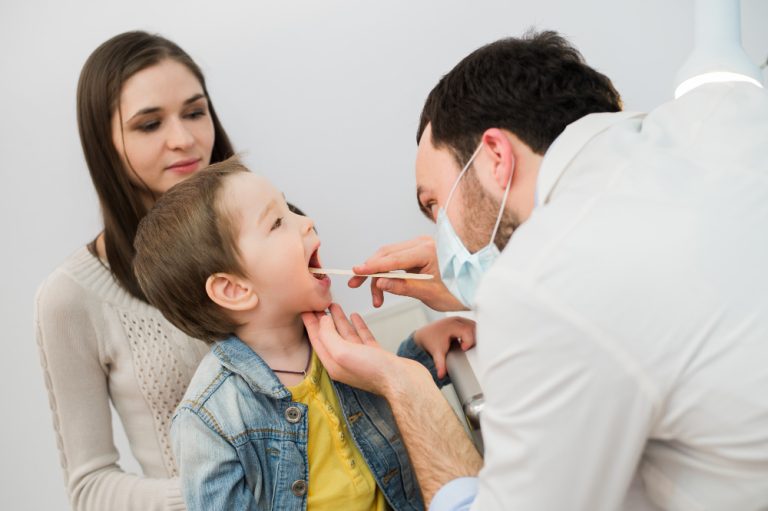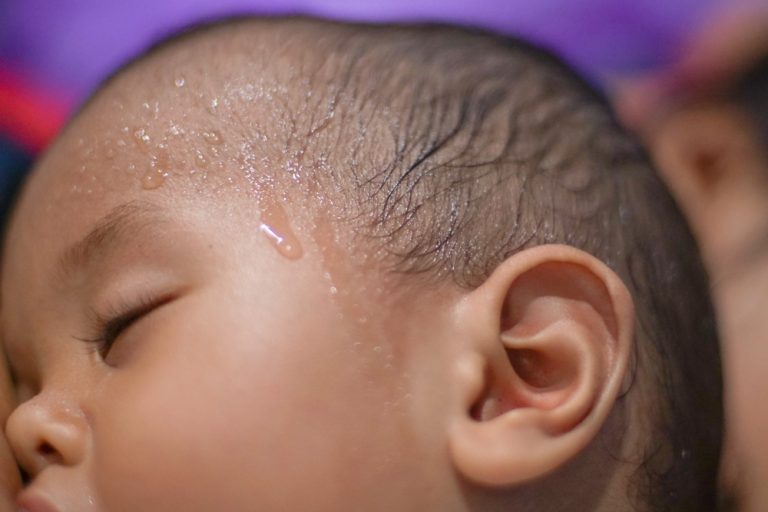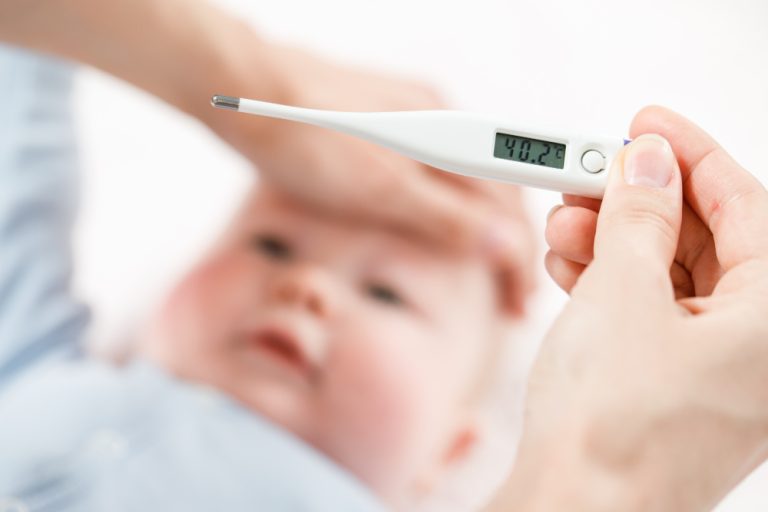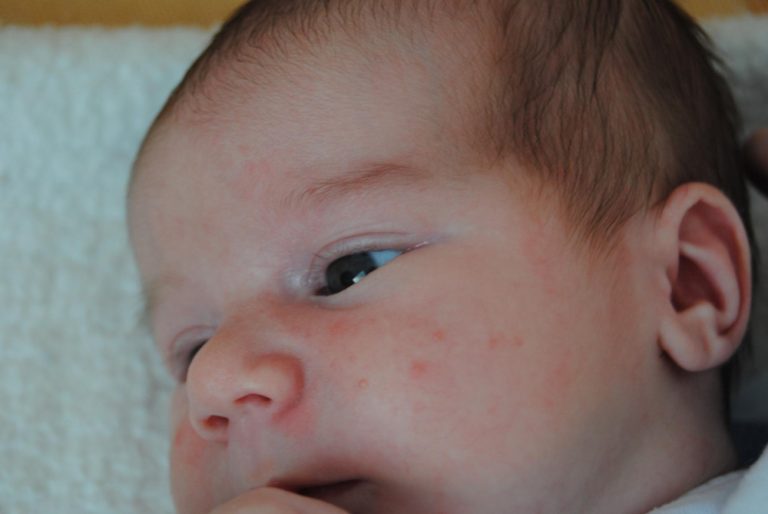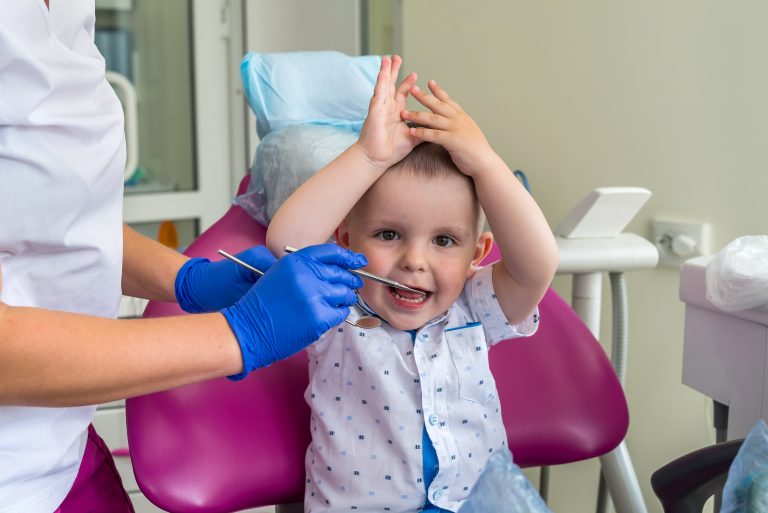How To Cure Thrush In Baby’s Mouth? Oral Thrush In Babies
Are you a new parent worried about your baby’s oral health? Have you noticed white patches in your baby’s mouth and wondered what it could be? Are you feeling anxious about how to cure thrush in baby’s mouth? If you answered yes to any of these questions, you’re not alone.
Nothing is more distressing for a parent than seeing their baby in discomfort. But don’t worry—we’ve got you covered. In this guide, we’ll cover everything you need to know about oral thrush in babies, from the causes and symptoms to the best remedies for effective treatment. So, let’s dive in and get your little one feeling happy and healthy again!
- Discover the causes behind oral thrush, including the role of Candida albicans and how factors like a weakened immune system or medication can contribute to its development.
- Uncover the telltale symptoms of oral thrush, such as white patches in your baby’s mouth that resemble cottage cheese, and how it differs from other common infections.
- Explore practical remedies and treatments, from antifungal medications to maintaining good oral hygiene practices to alleviate and prevent oral thrush in your baby.
Equip yourself with the essential insights to navigate how to cure thrush in baby’s mouth confidently and ensure your little one’s oral health and well-being.
Introduction to Oral Thrush in Babies
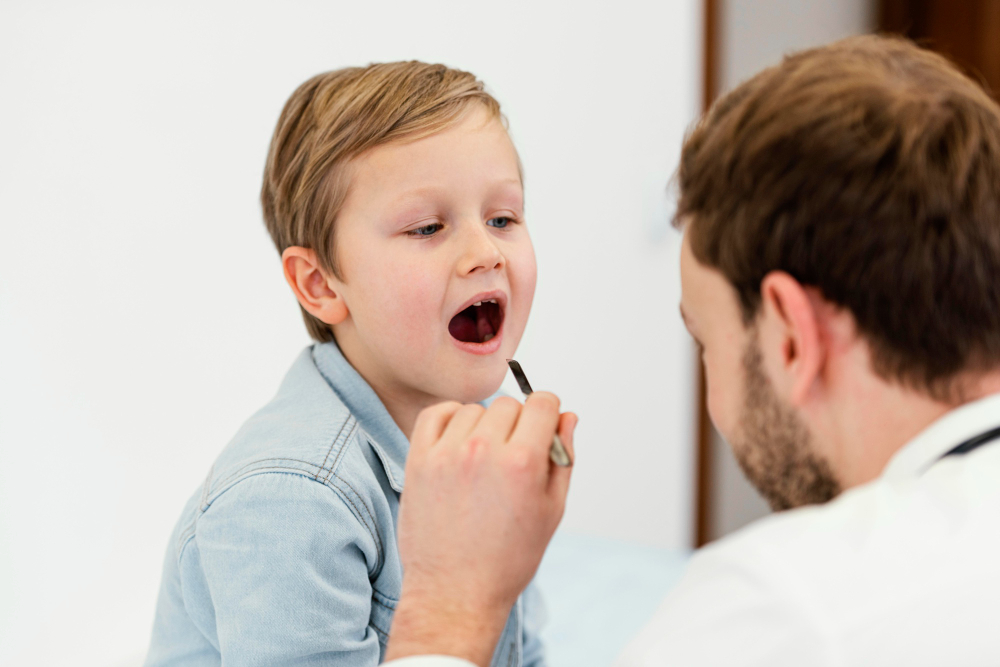
Oral thrush is a fungal infection caused by Candida albicans, a type of yeast that commonly lives in the mouth and digestive tract. It manifests as white patches or a white coating on the tongue, inner cheeks, and roof of the mouth in babies. While it can be concerning for parents, oral thrush is relatively common in infants and can usually be treated effectively.
Identifying and treating oral thrush is essential to prevent discomfort and complications for your baby. The infection can cause irritability, feeding difficulties, and diaper rash if it spreads to the diaper area. Moreover, if left untreated, it can also lead to more serious systemic infections.
To determine if your baby has oral thrush, look for the following signs and symptoms:
1. White patches or coating on the tongue, inner cheeks, and roof of the mouth.
2. Creamy, curd-like consistency resembling cottage cheese.
3. Irritability or fussiness during feeding.
4. Difficulty swallowing or refusing to eat.
5. Diaper rash that doesn’t improve with regular diaper cream.
If you suspect that your baby has oral thrush, it’s crucial to consult their healthcare provider for a proper diagnosis and treatment plan. Early identification and treatment can help alleviate symptoms and prevent the infection from spreading.
Remember, maintaining good oral hygiene for your baby is essential in preventing oral thrush. Cleaning their gums and mouth gently after feedings using a soft, damp cloth can help reduce the likelihood of the infection.
Signs and Symptoms of Oral Thrush in Babies
Oral thrush in babies can be identified through a range of signs and symptoms. It is crucial for parents to recognize these indications to take prompt action. Here are common signs and symptoms that can help identify oral thrush in babies:
1. Presence of white patches
Look for white, creamy patches on the tongue, roof of the mouth, inner cheeks, or gums. These patches may resemble cottage cheese or milk curds.
2. Difficulty in feeding
If your baby appears fussy or refuses to feed, it could be due to the discomfort caused by oral thrush. They may experience pain while sucking or swallowing.
3. Redness or soreness
The affected areas may appear red, swollen, or irritated. This can make the baby irritable and lead to difficulty in sleeping.
4. Coated tongue
A white coating or coating with a slight yellow tint on the tongue is another possible sign of oral thrush.
5. A cotton-like feeling in the mouth
Babies with oral thrush may have a cotton-like sensation in their mouth, which can be uncomfortable for them.
If you observe any of these signs and symptoms in your baby, it is important to consult a healthcare professional for a proper diagnosis and appropriate treatment. Early detection and intervention can help alleviate discomfort and prevent further complications.
Causes and Risk Factors of Oral Thrush in Babies

An overgrowth of the Candida albicans fungus primarily causes oral thrush in babies. This fungus is naturally present in the mouth and other parts of the body, but certain factors can disrupt the delicate balance and lead to oral thrush. Understanding the causes and risk factors can help parents take preventive measures and seek prompt treatment when necessary.
Causes of Oral Thrush in Babies
1. Weakened Immune System
Babies have developing immune systems, making them more susceptible to infections like oral thrush. Premature babies, those with compromised immune systems, or infants on antibiotic treatments are at higher risk.
2. Candida Overgrowth
When the natural balance of bacteria and yeast in the mouth is disrupted, Candida can multiply and cause oral thrush. This imbalance can occur due to factors like prolonged use of pacifiers or bottles, lack of oral hygiene, or sharing contaminated items.
3. Transfer from Mother
Infants can acquire Candida from their mothers during childbirth if the mothers have a vaginal yeast infection or if they have a breast yeast infection while breastfeeding.
Risk Factors for Oral Thrush in Babies
1. Antibiotic Use
Antibiotics can disrupt the balance of bacteria in a baby’s mouth, allowing the Candida fungus to thrive.
2. Steroid Medication
Infants who are prescribed steroid medication, such as for asthma treatment, may have a higher risk of developing oral thrush.
3. Weakened Immune System
Certain medical conditions or treatments that compromise the immune system, such as chemotherapy or HIV infection, can increase the likelihood of oral thrush in babies.
Preventing oral thrush in babies involves maintaining good oral hygiene, limiting the use of pacifiers, and sterilizing feeding equipment properly. When babies show signs of oral thrush, it is important to seek medical advice for appropriate treatment and to prevent the infection from spreading or recurring.
Diagnosing Oral Thrush in Babies
When it comes to diagnosing oral thrush in babies, healthcare professionals employ a combination of physical examination and, in some cases, additional tests. The primary focus is on identifying the characteristic signs and symptoms associated with this condition.
During a physical examination, the doctor will closely inspect the baby’s mouth for the presence of white patches or lesions on the tongue, inner cheeks, gums, and roof of the mouth. These patches may resemble cottage cheese or milk curds and are often accompanied by redness and inflammation.
In certain situations, healthcare professionals may perform further tests to confirm the diagnosis and rule out other possible conditions. These tests may involve taking a swab or scraping a small sample from the affected areas to analyze it under a microscope or sending it to a laboratory for culturing.
It’s important to consult a healthcare professional if you suspect your baby has oral thrush. They will be able to provide an accurate diagnosis and recommend appropriate treatment options.
How To Cure Thrush In Baby’s Mouth?
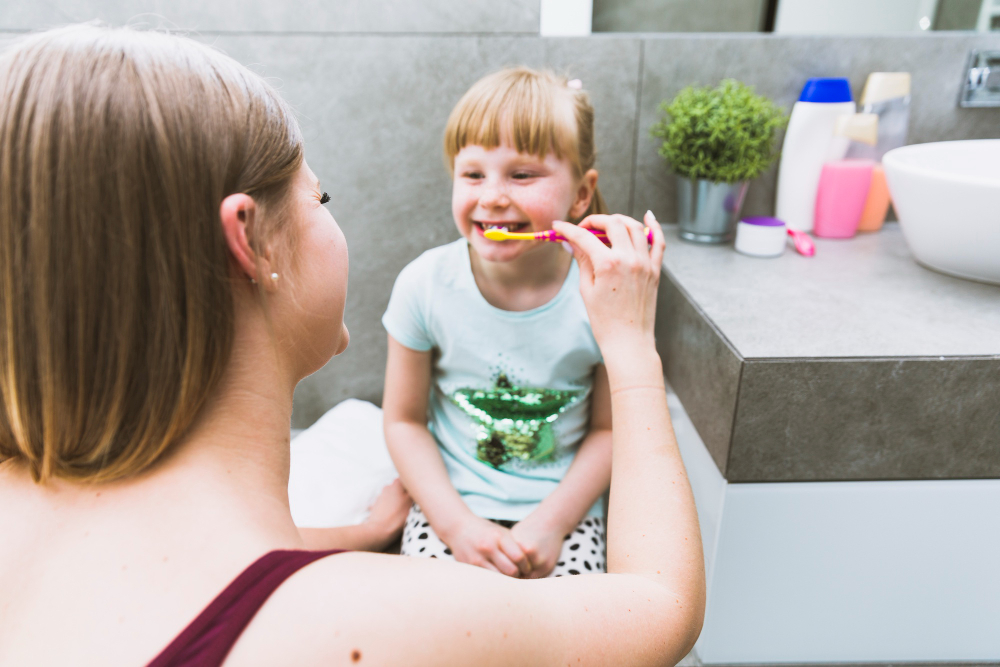
When it comes to treating oral thrush in babies, there are various options available to parents. The choice of treatment depends on the severity of the infection and the age of the baby. Here is a comprehensive overview of the treatment options for curing oral thrush in babies:
Medical Treatments
1. Antifungal Medications
Doctors may prescribe antifungal medications in the form of oral suspensions, gels, or lozenges. Commonly prescribed antifungals include nystatin and fluconazole. These medications help eliminate the Candida albicans fungus responsible for oral thrush.
2. Oral Gels
Antifungal gels containing miconazole or clotrimazole can be applied directly to the affected areas in the baby’s mouth. These gels help reduce the growth of the fungus and alleviate symptoms.
Home Remedies
1. Gentle Oral Cleaning
Regularly clean your baby’s mouth with a soft, damp cloth or gauze pad. Gently wipe the inside of the cheeks, gums, and tongue to remove any milk residue that may contribute to the growth of the fungus.
2. Probiotics
Introducing probiotics, such as lactobacillus acidophilus, to your baby’s diet may help restore the natural balance of bacteria in their mouth and inhibit the growth of Candida.
3. Breastfeeding Care
If you are breastfeeding, ensure proper hygiene by cleaning your nipples before and after each feed. Additionally, consider applying a diluted vinegar solution to your nipples to prevent the spread of oral thrush between you and your baby.
It is important to consult a healthcare professional before trying any home remedies or giving your baby over-the-counter medications. They can assess the severity of the infection and provide appropriate guidance.
Remember, timely and effective treatment is crucial for preventing the spread of oral thrush and ensuring your baby’s comfort.
Preventing Oral Thrush in Babies
Preventing oral thrush in babies is a crucial step in ensuring the well-being and oral health of your little one. By implementing simple yet effective measures, parents can significantly reduce the risk of their baby developing this common fungal infection. Here are some practical tips and advice to prevent oral thrush:
1. Maintain Good Oral Hygiene
- Gently clean your baby’s mouth and gums after feedings using a clean, damp cloth or sterile gauze pad.
- Use a soft infant toothbrush or fingertip toothbrush specifically designed for babies to clean their teeth once they start erupting.
- Avoid using toothpaste until your child is old enough to spit it out to minimize the ingestion of harmful substances.
2. Promote Healthy Immune System
- Breastfeed your baby, if possible, as breast milk contains antibodies that can help strengthen their immune system.
- If formula feeding, carefully follow the instructions for preparing and storing the formula to minimize the risk of contamination.
3. Limit Pacifier Use and Bottle Propping
- Restrict the use of pacifiers, particularly after the age of 6 months, as they can promote the growth of yeast in the mouth.
- Never prop the bottle, as it can allow milk or formula to pool in the mouth, creating an ideal environment for yeast overgrowth.
4. Sterilize Pacifiers, Bottles, and Nipples
- Regularly sterilize pacifiers, bottles, and nipples to eliminate any potential sources of contamination.
- Clean them thoroughly with warm soapy water and rinse well before sterilizing.
5. Wash Your Hands
- Always wash your hands before handling your baby’s bottles, pacifiers, or during oral care routines to minimize the transfer of germs to their mouth.
Remember, prevention is vital when it comes to oral thrush in babies. By implementing these simple practices, you can significantly reduce the risk of your little one developing this common infection. However, if you have any concerns or notice any symptoms of oral thrush in your baby, it is crucial to seek medical advice from your child’s healthcare professional.
When to Seek Medical Advice for Oral Thrush in Babies

Parents should be vigilant about their baby’s health, especially regarding oral thrush. While mild cases of oral thrush can be treated at home, there are situations where seeking medical advice is necessary.
1. Persistent Symptoms
If your baby’s oral thrush symptoms persist despite home remedies and treatments, it’s time to consult a healthcare professional. They can provide a more comprehensive diagnosis and recommend appropriate treatment options.
2. Discomfort and Difficulty Feeding
If your baby experiences discomfort or pain while feeding, or shows signs of difficulty swallowing, medical advice is warranted. A healthcare professional can assess the severity of the thrush and provide guidance on relieving discomfort.
3. Worsening Symptoms
If your baby’s oral thrush symptoms worsen over time, such as the appearance of new lesions or an increase in redness and inflammation, it’s important to seek medical attention. This may indicate a more severe infection that requires medical intervention.
4. High Fever
If your baby develops a high fever along with oral thrush, it could be a sign of a more serious infection. Contact your healthcare provider right away to evaluate the situation and recommend appropriate treatment.
Remember, healthcare professionals are equipped with the knowledge and expertise to provide the best care for your baby. Don’t hesitate to seek medical advice when in doubt or if your baby’s symptoms worsen.
FAQ: How To Cure Thrush In Baby’s Mouth?
Oral thrush in babies can be a common concern for parents, and understanding it is essential for their little one’s well-being. Here are some frequently asked questions about oral thrush in babies, along with helpful answers and advice:
Remember, each baby is unique, and it’s essential to consult a healthcare professional for personalized advice and recommendations regarding oral thrush treatment and prevention.
To sum up, oral thrush in babies can be a distressing experience for parents. However, by understanding the causes, symptoms, and treatment options, you can help your little one feel better in no time. Remember to consult your healthcare provider for a proper diagnosis and treatment plan, and maintain good oral hygiene practices to prevent the infection from recurring.
If you have any concerns or questions about how to cure thrush in baby’s Mouth, don’t hesitate to contact your healthcare provider. Your baby’s oral health matters, and with proper care and attention, it can be happy and healthy.


